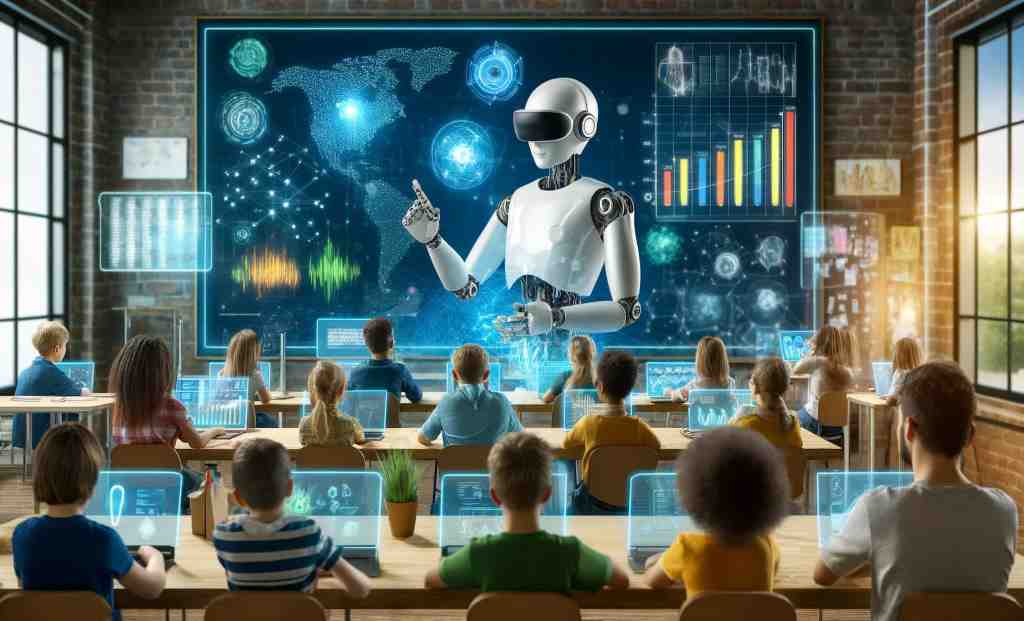Artificial Intelligence (AI) has permeated various sectors, and education is no exception. One of the most promising applications of AI in education is the emergence of AI-powered tutoring systems. These systems leverage AI algorithms to provide personalized instruction and support to students, marking a significant shift in the traditional tutoring landscape.
Advantages of AI-Powered Tutoring Systems

- Personalized Learning: It excels in tailoring learning experiences to individual students. These systems analyze a student’s strengths, weaknesses, learning styles, and pace to create customized learning paths. This personalized approach ensures that students receive the right content at the right time, maximizing their learning potential.
- 24/7 Availability and Accessibility: Unlike human tutors, AI-powered tutoring systems are available round the clock, offering students the flexibility to learn at their convenience. This accessibility eliminates scheduling conflicts and allows students to revisit challenging concepts whenever needed. Additionally, AI search engines can change the internet by providing more efficient and personalized search results.
- Instant Feedback and Support: AI-powered tutoring systems provide real-time feedback on assignments, quizzes, and practice exercises. This immediate feedback helps students identify areas for improvement and reinforces their understanding of the material. Additionally, these systems can offer hints, explanations, and additional resources to support students who encounter difficulties.
- Data-Driven Insights: AI-powered tutoring systems collect vast amounts of data on student performance, learning patterns, and engagement levels. This data can be analyzed to gain valuable insights into how students learn best and identify areas where the curriculum or teaching methods need improvement.
- Cost-Effectiveness: While initial investments in AI-powered tutoring may be required, they can be more cost-effective in the long run compared to hiring human tutors. These systems can scale to accommodate a large number of students without increasing costs proportionally.
- Enhanced Engagement: AI tutoring systems often incorporate interactive elements such as gamification, simulations, and virtual reality to make learning more engaging. These features can motivate students, increase their interest in the subject matter, and improve knowledge retention.
- Addressing Teacher Shortages: In regions facing teacher shortages, AI tutoring systems can serve as valuable supplementary tools. They can help bridge the gap by providing personalized instruction and support to students who lack access to qualified teachers.
- Promoting Self-Paced Learning: AI-powered tutoring systems empower students to learn at their own pace. This flexibility allows students to spend more time on challenging topics and progress quickly through areas they find easy. Self-paced learning fosters independence and self-motivation.
Considerations and Challenges
While AI-powered tutoring systems offer numerous advantages, there are also important considerations and challenges to address:
- Data Privacy and Security: The collection and storage of student data raise concerns about privacy and security. It is crucial to implement robust data protection measures to safeguard sensitive information.
- The Role of Human Tutors: AI-powered tutoring is not intended to replace human tutors entirely. Human interaction remains essential for social-emotional learning, mentorship, and addressing complex questions that require nuanced understanding.
- The Digital Divide: Efforts must ensure equitable access to educational technology and bridge the digital divide in underserved communities or regions with limited internet connectivity, as access to these tutoring systems may be limited.
- Ethical Considerations: As it becomes more sophisticated, ethical considerations regarding algorithmic bias, fairness, and transparency become increasingly important.
The Future of AI-Powered Tutoring
AI-powered tutoring systems have the potential to revolutionize education by providing personalized, accessible, and engaging learning experiences. As AI technology continues to advance, we can expect these systems to become even more sophisticated and effective.
However, it is essential to approach the integration of AI in education with careful consideration, addressing ethical concerns and ensuring that AI serves as a complement to, not a replacement for, human educators. The ultimate goal is to leverage AI to create a more equitable and effective educational landscape for all learners.




